Kankana MUKHOPADHYAY, Kevin MCGAHAN,
Angie TAN, and WONG Soon Fen
College of Alice & Peter Tan (CAPT)
A group of Fellows from the CAPT teaching team did a critical study of their College’s Study Trip for Engagement and EnRichment (STEER) programme, specifically to gain a deeper understanding of the value of its intentional pedagogies and the ascribed meaning to the prescribed learning outcomes that the STEERs programme afforded.
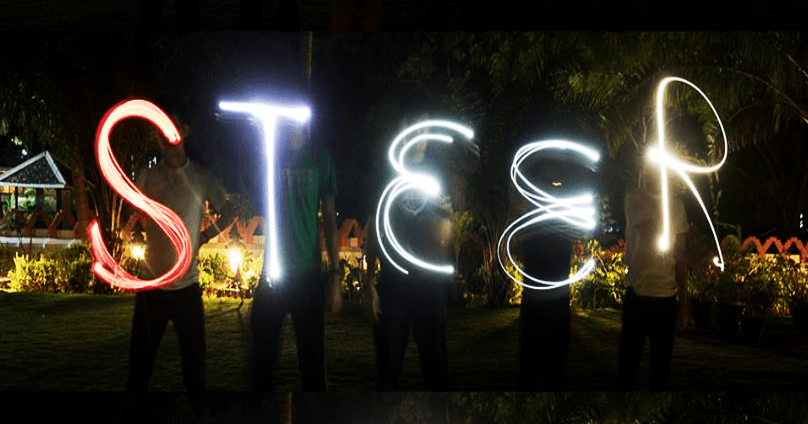
Photo credit: Jensen Chen
Mukhopadhyay, K., McGahan, K., Tan, A., & Wong, S. F. (2023, November 21). Pause, reflect, move forward: Insights gained from a TEG-funded study of short-term overseas experiential learning programmes. Teaching Connections. https://blog.nus.edu.sg/teachingconnections/2023/11/20/pause-reflect-move-forward-insights-gained-from-a-teg-funded-study-of-short-term-overseas-experiential-learning-programme/
Short-term overseas experiential-learning programmes are built into the curriculum of the College of Alice & Peter Tan (CAPT)1. Guided by the ethos of active citizenship and community engagement, CAPT has conducted 19 study trips2 to 12 countries since 2012 to achieve the College’s learning outcomes3 of critical thinking, appreciation for complexity, effective communication, and personal and social responsibility, through intentional pedagogy employed beyond traditional classrooms. Combining seminar-style lessons and overseas trips, CAPT STEERs offer opportunities for students to understand contemporary issues through interactions with communities and stakeholders, linking theory and practice.
An average of two CAPT STEERs were conducted annually until COVID-19 put a halt to such trips for two years. This unprecedented pause provided the opportunity to reflect and systematically investigate the programme4. While such trips benefit students’ growth (McMorran, 2015), we wanted to delve deeper into the value of our intentional pedagogies and the ascribed meaning to the prescribed learning outcomes that this programme afforded5.
Two contexts of CAPT STEERs intersected to form the basis for this study. First, the use of intentional pedagogies (e.g., peer presentations, designing engagement with partners) in pre-trip seminars (Figure 1) and overseas trips to achieve the prescribed learning outcomes. Second, the collaboration among faculty, students, and community partners from diverse backgrounds to facilitate learning through the active triangulation of depth, breadth, and analysis in the context of knowledge exchange (Haynes, 2002) (Figure 2). Using qualitative research methods, we analysed 85 student reflective essays from previous STEER trips (AY2016/17 to AY2019/20), and in-depth interviews with five faculty members involved in conceptualising, designing, and conducting the STEERs. Theoretical coding based on the learning outcomes was used to analyse the data. The findings illuminated three significant themes—(i) creating a safe learning environment to foster critical thinking, (ii) rethinking students-as-partners (SaP) to enhance collaboration, and (iii) recognising educators’ growth through interdisciplinarity and collaboration—that deconstructed the meaning of the intentional pedagogies and the prescribed learning outcomes.
Creating a Safe Environment for Learning to Foster Critical Thinking
CAPT STEERs with intentional pedagogy created a safe learning environment that allowed students to collaborate and build a relationship of trust and reciprocity. This paved the way to help break the binaries of discipline, years of study, age, and even the power differentials between faculty and students. It allowed students to critically reflect on their experiences and openly share their thoughts.
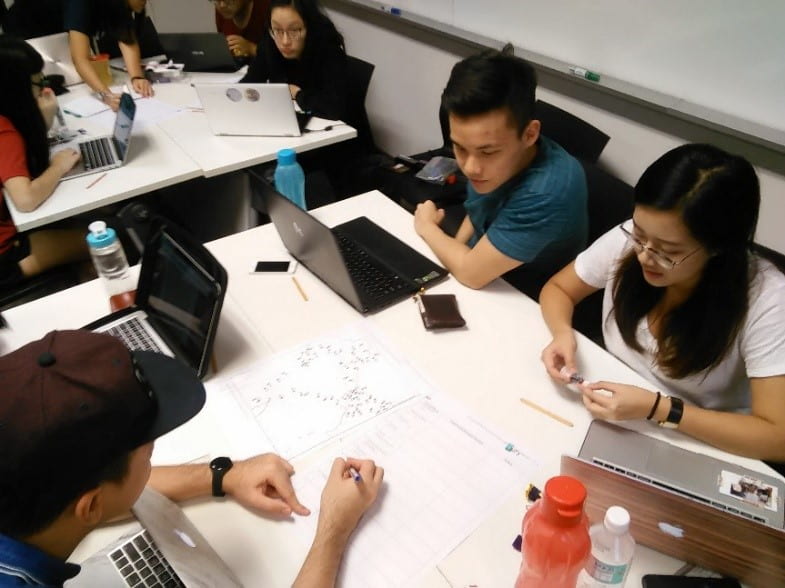
A significant example of this emerged in the ethics in experiential learning. While there is vast literature on ethics and experiential learning (Biber 2021; Wilson-Forsberg et al., 2022), our findings highlighted that having the safe space to reflect on ethical issues encountered during various STEER trips not only helped to minimise harm, but also enabled critical thinking and personal growth in students who reflected, for instance, on the importance of obtaining consent for photo taking. One participant reflected on a rural village visit, expressing worry “that hordes of tourists visiting these children would result…in exploitation.” (Student reflection, STEER Myanmar, 2019). Another instance was on animal welfare and environmental concerns where the participants questioned the ethics of riding animals while visiting conservation projects. Given the safe learning environment created, addressing politically and culturally sensitive issues and discussing their adverse consequences were uninhibited. STEER faculty openly discussed the ethics of educational trips to raise awareness and minimise risks to the very communities with whom we were engaging and gleaning lessons from.
Rethinking Students-as-Partners (SaP) to Enhance Collaboration
The Students-as-Partners (SaP) framework deconstructs traditional classroom practices and provides students with a learning environment where they are involved as co-creators in teaching (Bovill et al., 2011; Hutchings & Huber, 2010). As a collaborative engagement, CAPT STEERs include students in different aspects of the programme by assigning roles and responsibilities that include researching the places and organisations they will visit, taking charge of engagements, managing administration, logistics, finance, and photography/videography. This allows students to understand the behind-the-scenes of developing such higher education programmes and empowers them. A sharing like “they [students] are invested in it they’re willing to commit themselves” (Faculty interview, i4) reveals that empowered students are engaged learners.
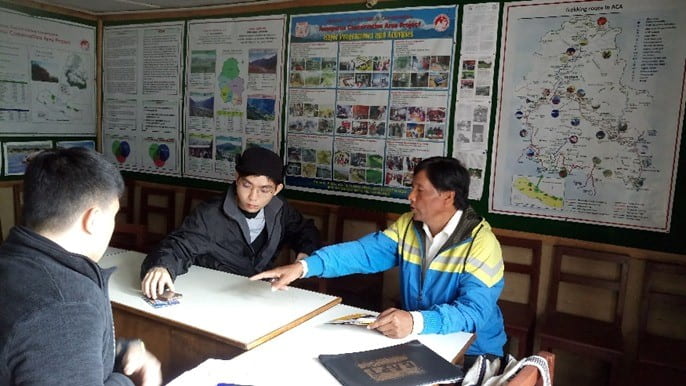
Photo credit: Wong Soon Fen
Reciprocity through mutual exchanges between faculty and students taking on the responsibilities of teaching, presenting the different topics, and sharing perspectives provides educators with opportunities to better understand how students learn and make connections with their experiences (Mukhopadhyay & Wong, 2022), which our findings corroborate. When we harness the creative energy and perspectives of both educators and learners, the learning dynamics is shifted from a top-down approach to an environment where both parties make decisions to co-create meaningful learning experiences.
Recognising Educators’ Growth through Interdisciplinarity and Collaboration
In CAPT STEERs, the teaching teams recognise and incorporate individual disciplinary strengths, and thereby operationalise interdisciplinarity in the pedagogical design. While student learning and growth remain the focus of CAPT STEERs, as intended, our findings suggest that faculty development is evident and often occurs during these trips through engagements with students, other faculty members, and partner organisations in different cultural and geographic settings, constituting a robust interdisciplinary experience from which all can learn and grow (Figure 3). As highlighted by an interviewee, “when we are different, actually that’s good because we would hopefully learn from one another, yeah?” (Faculty interview, i2). Moreover, the study points to a symbiotic learning relationship among students and educators, with learning and exposure from students and educators reinforcing each other, as suggested here: “I think it really helps fellows renew their passion for learning” (Faculty interview, i5).

Photo credit: STEER Myanmar Team
Consequently, a key takeaway suggests that keeping faculty as well as students engaged and enriched makes such educational trips more sustainable by nurturing lifelong learning motives.
Teaching informs research and research informs teaching! The pause in conducting CAPT STEERs due to COVID-19 provided this opportunity to critically reflect on the association between intentional pedagogies, and student learning and growth. The insights gained legitimises the intentional pedagogies that can educate students and faculty to think, reflect, and move forward as active global lifelong learners.
Acknowledgments
We are grateful to the Centre for the Development of Teaching and Learning (CDTL) for the Teaching Enhancement Grant (TEG) which made this study possible. We would like to thank the CAPT STEER TEG research team members for their partnership in the research study – Dr Lavanya Balachandran, Dr Toh Tai Chong, Dr Joelle Lai, A/P Reuben Wong, and A/P Tan Lai Yong. We would also like to express our sincere appreciation for Charlene Chun, Chew Yu Cai and Kathlyn Laiu, our student research assistants, for all their help in this study.
Endnotes
- CAPT is a residential college in the University Town. https://capt.nus.edu.sg/the-capt-experience/learning-capt/other-academic-activities/study-trips
- Study Trips for Engagement & EnRichment (STEER) programme, under the Global Relations Office (GRO), NUS. http://www.nus.edu.sg/gro/steer.php
- These learning outcomes are part of the University Town College Programme (UTCP).
- This CAPT STEER research study was supported by a Teaching Enhancement Grant (TEG) from the Centre for the Development of Teaching and Learning (CDTL).
- The authors of this post have previously contributed reflections on their practice on this blog, covering topics such as community-based learning and research (CBL&R), and initiating community engagement and volunteer activities with community partners during the COVID-19 pandemic.
References
Biber, D. (2021). Transformative learning curriculum for short-term study abroad trips. Journal of Teaching in Travel and Tourism, 21(2), 198-204. https://doi.org/10.1080/15313220.2020.1775757
Bovill, C., Cook-Sather, A., & Felten, P. (2011). Students as co-creators of teaching approaches, course design, and curricula: Implications for academic developers. International Journal for Academic Development, 16(2), 133-45. http://dx.doi.org/10.1080/1360144X.2011.568690
Felten, P., Cook-Sather, A., & Bovill, C. (2014). Engaging students as partners in learning and teaching: A guide for faculty. John Wiley & Sons.
Haynes, C. (2002). Introduction. In C. Haynes (ed.) Innovations in interdisciplinary teaching. Oryx Press
Hutchings, P., & Huber, M. T. (2010). Foreword. In C. Werder & M. M. Otis (Eds.), Engaging student voices in the study of teaching and learning (pp. xi–xvi). Stylus.
McMorran, C. (2015). Between fan pilgrimage and dark tourism: Competing agendas in overseas field learning. Journal of Geography in Higher Education, 39(4), 568-83. https://doi.org/10.1080/03098265.2015.1084495
Mukhopadhyay, K. & Wong, S. F. (2022). A hybrid model of experiential learning: A systematic exploration of student-teacher co-created pedagogy in higher education. In Tambyah, S. (Ed.) Student growth and development in new higher education learning spaces: Student-centred learning in Singapore. Routledge.
Wilson-Forsberg, S., Monaghan, S. R., & Corrales, D. C. (2022). Witnesses to inhumanity on shifting terrain: Embracing an ethic of discomfort for optimal learning in an international field course. Education, Citizenship and Social Justice, 18(3), 344-63. https://doi.org/10.1177/17461979221097073
 |
Kankana MUKHOPADHYAY is a Senior Lecturer and a Resident Fellow at the College of Alice & Peter Tan (CAPT). She values co-construction of knowledge, and teaching and doing research in the living-and-learning environment of CAPT for the past eight years have allowed her to engage students actively in their own learning. Her background is in education and human development and her current research interests are in informal and out-of-classroom experiential learning in higher education. Kankana can be reached at kankana.m@nus.edu.sg. |
 |
Kevin McGAHAN is a former Lecturer in the Political Science Department and Global Studies Programme. He currently holds a full-time appointment as a Lecturer at the College of Alice & Peter Tan (CAPT) where he teaches globalisation, migration, sustainable development, and leadership. Kevin can be reached at rc3km@nus.edu.sg. |
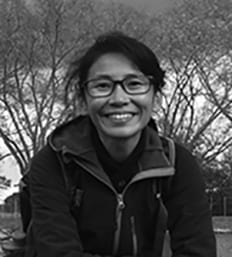 |
Angie TAN is an Instructor and a Fellow at the College of Alice & Peter Tan (CAPT). She believes in the value of experiential learning and strives to incorporate elements of experiential learning when designing her lessons to create opportunities where students can learn through discovery and exploration. Angie can be reached at angietan@nus.edu.sg. |
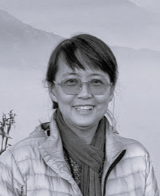 |
WONG Soon Fen is Senior Lecturer, Director of Student Life and Resident Fellow at Ridge View Residential College (RVRC), and Fellow at the College of Alice & Peter Tan (CAPT). As a lifelong learner, she has enjoyed teaching and learning through collaborative projects and research work in the areas of experiential learning, living and learning programmes, and higher education pedagogy. Soon Fen can be reached at rc3wsf@nus.edu.sg. |

